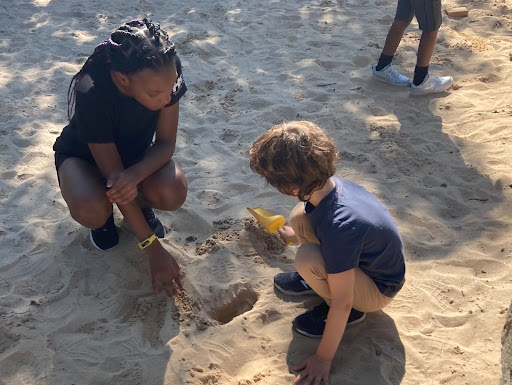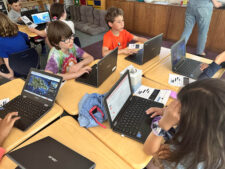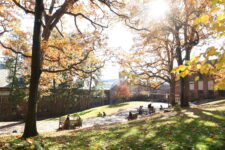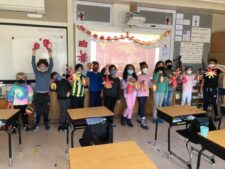For many of Fieldston Lower’s youngest (and littlest!) students — many of whom are still adjusting to a typical year — the first few weeks of school can be incredibly daunting.
On the other hand, there’s nothing quite like being an “upperclassman” on campus: even during the anxiety-provoking first few weeks of the academic year, the majority of older students generally have an idea of what to expect when they walk through the doors on the first day of school. At the very least, they know where to find the playground and the cafeteria!
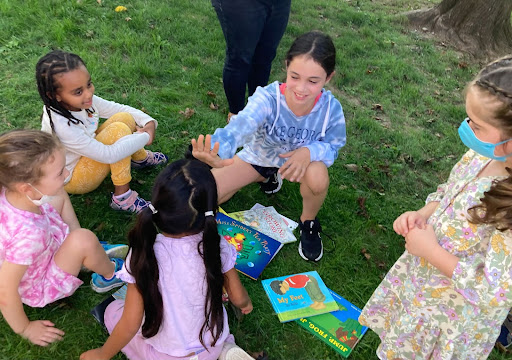
Assistant Principal for Student Life Naomi Randolph has the perfect solution to mitigate the inevitable back-to-school jitters: the Fieldston Lower Buddy Program. The Buddy Program offers the opportunity for older students in 3rd–5th Grade to nurture meaningful connections and interactions with younger students in Pre-K–2nd Grade.
To kick off this academic year, Randolph made a point to emphasize the importance of the Buddy Program as a response to critical time spent with physical distancing constraints: “Especially in the wake of the pandemic, there is something particularly comforting in being read to, or in reading to someone else. We are looking to encourage this ‘closeness’ once again. The Buddy Program is a great way to do that.”
At the Ethical Culture Fieldston School, collaboration and dialogue are woven into the fabric of student life. In challenging students to relate their experiences and personal growth to others, they are encouraged to “inherent interdependence” within the School and beyond.
Randolph posits a couple of essential questions: What would it mean for our youngest students if they had an older and more experienced “buddy” to lean on during this time of transition? And for our older students, what does this responsibility teach them about setting an example?
Before buddies were assigned and introduced to one another in September, teachers were encouraged to explain the purpose of the program to their students. During this discussion, teachers reminded students to use active listening and non-judgemental response skills and emphasized guidelines for a successful program such as no “put-downs” or sarcasm.
“Students’ cooperative learning skills — such as sharing, turn-taking, praising, helping, empathizing, and more — are greatly improved when they work in mixed-age groupings,” explains Randolph.
I know that big kid, and they respect me, see me, love me, and will run over here to wrap me in a hug if I need it.
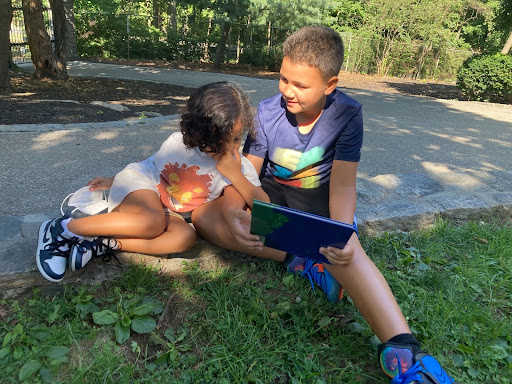
At the initial Buddy Program meeting, students played get-to-know-you games, but according to Randolph, the options for what students can do during ‘Buddy time’ vary widely and are only limited by the imagination of the teachers and the age and skill level of the students. Buddies can read books, write stories, plan skits, do science experiments, play all types of games, cook, sing songs, go on scavenger hunts, complete art projects, and so much more. Buddy pairs are even encouraged to visit the garden to prepare the ground and garden area for winter!
“It’s important to feel your age and your role within the community,” explains Randolph. “There is a sense of seniority for our older students, and they need to understand the weight of that responsibility. For younger students, the School is so much bigger than they could ever imagine. Everyone is bigger than they are. It really helps them to build a connection with the biggest students. It helps them to stand a little bit taller and feel a little bit more comfortable and confident.”
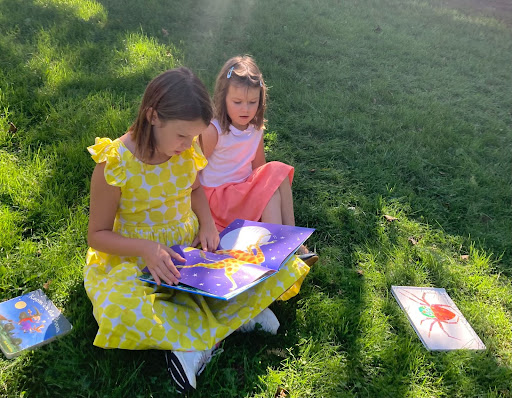
The Fieldston Lower Buddy program has proven to be not only a community builder but a confidence builder. Spending meaningful time with a student in a grade other than their own creates a sense of belonging and builds self-esteem, and encourages students to take care of one another. All of the students at ECFS are unified by their membership in the School’s community, which encourages them to help each other in their growth as much as it encourages them to engage with the world around them.
“We are looking to build connection in every way that we can,” says Randolph. “There’s nothing like that moment when a young student can point across a room or across the field and say, ‘I know that big kid, and they respect me, see me, love me, and will run over here to wrap me in a hug if I need it.’”
